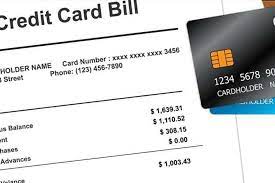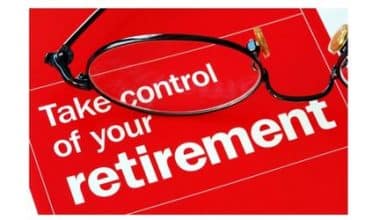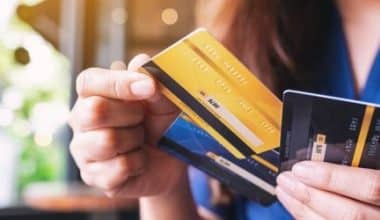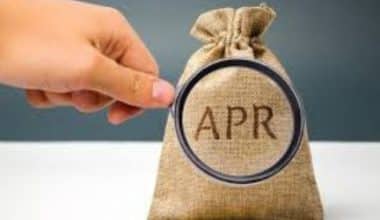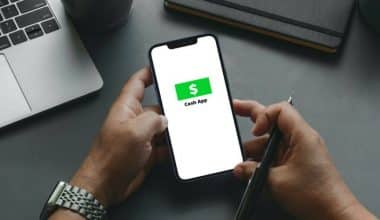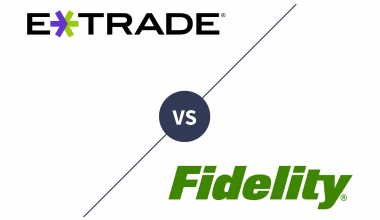Are you attempting to know when is the best time to pay off your credit card bill or to avoid paying interest and to increase your credit score? This article is for you.
When Should I Pay My Credit Card Bill?
At a minimum, you should pay your credit card account on time each month. If you’re like the majority of credit card users, you’re good as long as you follow these guidelines. However, in some instances, you can benefit by paying your account early. This is because the debt reported to credit units has a direct impact on your credit scores.
To fully appreciate the benefits of paying early, it’s necessary to understand how the credit card billing cycle works.
Credit cards are billed every month, and there are three important dates to remember:
#1. The Statement Date
Your card issuer gathers all activity on your card account and generates your monthly statement once a month. This occurs on the statement date, also known as the closing date. Anything that occurs after this date including activity that occurs between the time your statement is generated and the time it is mailed to you will be included in your subsequent statement.
When your statement is generated, it will include a balance. This is computed by taking the balance at the start of the billing cycle, adding all-new charges, and removing any payments made throughout the cycle.
#2. The Due Date
This is the deadline for making at least the minimum payment due. The due date is typically approximately three weeks following the date of the statement. Failure to make a minimum payment by the due date results in a late fee.
#3. Date of Submission
This is the date your card issuer submits your balance to the credit bureaus. Unlike the closing and due dates, your bill does not include the reporting date. It could occur at any point during the month, but it is prudent to expect it will occur near the close of your statement.
Paying Your Bills on Time May Benefit Your Credit Score
The credit usage ratio is a significant aspect of determining your credit score. This is the balance owed as a proportion of your available credit. In general, the lower your use rate, the better, and utilization rates greater than 30% may be detrimental to your credit ratings. This is where you can alter your credit card payment.
Credit scores are calculated using the information provided to credit units about your accounts. This information contains your balance and credit limit, which are used to calculate your utilization ratio in the scoring algorithm. However, this data is not updated continuously. It is only reported once a month, on the specified reporting day.
Why is The Due Date Important?
Irrespective of when you pay, ensure that you pay the minimum amount required on time. Otherwise:
- Your issuer may charge you a late fee. Recently, late fines can range from $10 to $40, depending on the issuer’s policy and whether this is your first late payment.
- Your credit scores may suffer as a result. Late payments of more than 30 days will appear on your credit report, where they might have a negative impact. Your payment history is the single most important component in determining your credit scores. Furthermore, a late payment might remain on your credit report for seven years.
Additional Suggestions For Managing Your Bill
Apart from monitoring your credit utilization and making payments when it becomes excessive, here are a few additional tips for controlling your credit card bill:
- Maintain a budget and keep track of your spending. This way, you’ll avoid spending more than you can pay back in a single month.
- Enroll in your issuer’s SMS or email alerts to stay informed about your balance and billing due date.
- Contact your issuer to change the due date of your bill if it does not align with your payment plan.
- Each month, carefully review your statement. This will assist you in identifying and correcting any unlawful charges that may occur.
- Arrange for automatic payments. This can assist you to avoid missing a payment due date unintentionally.
Next in this article is knowing when to pay your credit card bill to increase your score.
When Should I Pay My Credit Card Bill To Increase My Credit Score
Credit card users may well be aware that exceeding 30% of a monthly credit limit might have a harm a credit score. However, a lesser-known method of influencing that percentage is referred to as “credit utilization”. This offers a different kind of value one that transcends dollars spent or dollars saved.
Credit card providers report a cardholder’s balance to credit bureaus monthly; however, this does not always correspond to the conclusion of a billing cycle. Bear in mind that if a cardholder pays off an amount in whole, the credit utilization ratio lowers to 0%. Thus, regardless of how much they spend in a month, if a cardholder pays a bill shortly before a balance is recorded; the account’s credit utilization seems to be relatively low. In that situation, the portion of their credit score influenced by “amounts owed” a critical category on the report will be calculated in their favor. This can boost a credit score dramatically.
However, without understanding when your balance is reported to credit reports, what are your options? A typical method for folks attempting to improve their credit score is to simply pay off their credit card bill immediately in the hope that this will prevent reporting sooner than if the payment were stalled.
Moreover, Paying late gives cardholders the most financial flexibility and may be the only option if cash is limited. Most credit card companies let customers adjust their payment dates so bills are due shortly after payday. Even while living paycheck to paycheck, this gives some people more freedom and a low credit utilization rate. Changing billing cycle dates may be as easy as entering into an online account or calling customer service, according to the card issuer.t.
Below is the list of things to do to increase your credit score
#1. Keep An Eye On Your Payment History
Your payment history accounts for the majority of your credit score. To enhance your payment history, take the following steps:
- Always make on-time payments
- Make a minimum payment if you are unable to pay the full amount you owe.
- If you believe you will have difficulty paying a bill, call the lender immediately.
- Make all payments on time, even if a bill is disputed.
#2. Make Prudent Use of Credit
Avoid exceeding your credit limit. If you have a credit card with a $5,000 limit, make an effort not to exceed it. Borrowing more over the credit card’s approved limit can damage your credit score. Also, attempt to use less than 35% of your available credit. It is preferable to have a bigger credit limit and to use it less frequently.
#3. Extend The Duration of Your Credit History
The longer you keep a credit card open and active, the better your credit score. Your credit score may be worse if you have recently opened credit accounts.
When you transfer credit from an older account to a new one, the new account is treated as a new credit. Consider maintaining an earlier account even if you no longer require it. Utilize it regularly to maintain it active. Ascertain that there is no price for keeping the account open but not using it. Consult your credit agreement to determine whether a fee is applicable.
#4. Reduce The Number of Credit Applications or Credit Checks You Submit.
It is natural and expected that you will seek credit on occasion. When lenders and others request your credit report from a credit bureau, this is referred to as an inquiry. Credit inquiries are often referred to as credit checks. If your credit report contains an excessive number of credit checks, lenders may conclude that you are:
- Seeking credit urgently
- Attempting to live above your means
How to limit the number of credit checks conducted
To limit the number of credit checks on your report, follow these steps:
- Restrict the number of credit applications you make
- When searching for a car or a mortgage, obtain quotations from many lenders within two weeks. Your queries will be aggregated and regarded as a single inquiry to calculate your credit score
- Apply for credit only when absolutely in need.
Through with when to pay your credit card bill to increase your credit score, next is when to pay to avoid interest
When Should I Pay My Credit Card Bill To Avoid Interest
If you have a zero-balance credit card, you won’t be charged interest on purchases until the day after your bill is due, and then only on the balance that remains on your card. Paying your credit card balance in full each month eliminates interest charges.
How To Pay Your Grace Period To Avoid Interest In Paying Credit Card Bill
There is no guarantee that you will have a grace period. Pay your statement balance in full and on time each month to keep your grace period and avoid incurring interest. It’s not just that you’ll pay interest on your balance if you keep it open; you’ll also start accruing interest on new purchases the moment you make them.
Getting your grace period back may also take some time. Once the grace period expires, it can take up to two billing cycles to get it back. Below is how to pay your credit card bill to avoid interest.
#1. Keep away from Cash Advances and Balance Transfers
On the day the cash advance is made, the interest will begin to accrue. Card and convenience check cash advances have no grace period. Using a credit card to take out a cash advance may cost you more in interest than you bargained for. Because you’ll be carrying a balance right away if you get a cash advance, you run the danger of missing out on your grace period.
#2. Pay Only What You Can Afford To Do Business
It’s easy to charge more than you can afford while using a credit card because of the deferred payment technique. Amounts due can grow quickly, even if you manage your spending. Unexpected expenses can make it harder to pay the payment as well as the bill itself.
Keep track of your spending and only charge what you can afford when the bill comes in. Prepare ahead of time in case of an emergency. The only way to ensure that you will be able to pay all of your debts is to save money for unexpected emergencies.
#3. Enroll in AutoPay
Consider setting up automatic payments on your credit card account if you want to pay off your balance each month. As a result, you’ll never miss a payment again. In the event of an unintentional late payment, you can prevent losing your grace period.
#4. Find Out How Much Interest You’re Paying
Confusing APR, or Annual Percentage Rate. If you have a balance on your card, make sure you understand how much interest you will be charged. With this information, you can devise a strategy for paying off your debt. Keeping track of how much interest you’ll be charged if you don’t stick to your budget could spur you to do so even if your account is zero.
Use A Credit Card And Get The Benefits Without Paying For It
#1. Anti-Fraud and Shopping Cart Security
Cash is significantly less secure than credit cards. It’s possible to replace your cards if your wallet is stolen or misplaced, so reducing your financial exposure in the event of a scam. Most credit cards have zero liability for purchases made with your information without your permission.
As a bonus, credit card purchases often come with purchase safeguards. Theft or damage to purchases may be covered by some credit cards. If you buy something new using a credit card, you have the option of extending the manufacturer’s warranty. If you ordered something online and it never arrived, you can notify your credit card company and ask them to reverse the payment.
#2. Credit Card Reward Points Can Be Earned
If you pay interest on a credit card, the value of your rewards is considerably reduced. Paying up your credit card each month eliminates interest and allows you to reap all of the advantages at no additional cost.
Make sure you’re using the best rewards card for your shopping habits. ‘ With the appropriate credit card, you may save money, get cash back, or even earn travel benefits.
#3. Build your Credit
The most important factor in establishing good credit is making on-time monthly payments on your credit card bills. Building credit does not necessitate carrying a balance.
Another component in determining your credit score is how much debt you have relative to your available credit. Reducing the balance on your card improves your ratio of outstanding debt to available credit. There is no cost to building credit.
How Many Days Before Due Date Should I Pay My Credit Card?
This is the deadline for making at least the minimum payment due. The due date is typically approximately three weeks following the date of the statement
Should I Wait for My Bill to Pay My Credit Card?
At a minimum, you should pay your credit card account on time each month. If you’re like the majority of credit card users, you’re good as long as you follow these guidelines
Can I Use My Credit Card the Day Before Its Due?
After your billing cycle ends, you often have a grace period of 21 days or more until your payment is due, during which you can pay off your purchases without incurring interest. During the grace period, you are entirely permitted to use your credit card.
What Date Is Best to Pay Credit Card?
A typical method for folks attempting to improve their credit score is to simply pay off their credit card bill immediately in the hope that this will prevent reporting sooner than if the payment were stalled.
What Happens if I Pay Before My Statement?
Making a payment before the end of your statement reduces the total balance that the card issuer reports to the credit agencies. As a result, the credit utilization percentage used to calculate your credit score that month is reduced.
Does Paying Credit Card Immediately Affect Credit Score?
Allow a few billing cycles, between one and two months, for the credit card business to report your updated information and for credit scoring algorithms to determine that you are not incurring new debt immediately. After your information is corrected and a new score is calculated, your credit score may increase.
Does Paying Twice a Month Increase Credit Score?
Making multiple monthly payments on your credit cards will not improve your credit score. However, the results of making many payments might.
